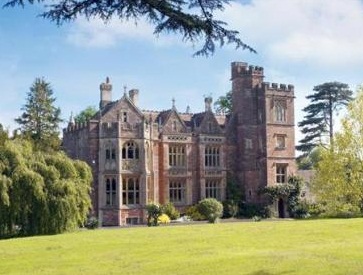Wealthy Families Face Increase in Probate Fees
Wealthy Families Face Increase in Probate Fees

Deficit-reducing proposals announced by the government earlier this year could see probate fees increase from £155 to £20,000 for those in England and Wales who die with large estates.
The Ministry of Justice has published plans to reduce the £1.1bn net annual cost of running the court system by introducing a progressive regime of probate fees in England and Wales, proportionate to, and rising with, the value of an estate. The government’s proposals will increase the payment threshold to £50,000, lifting the great majority of estates out of probate charges altogether. It is reckoned that around 30,000 people inheriting between £5,000 and £50,000 would become exempt from probate fees under the plans
However, those with estates worth more than this level would have to pay considerably more.
The proposed fees range from £300, for estates worth no more than £300,000, to as much as £20,000, for those valued at more than £2m. Charges in between these values would rise progressively from £1,000 to £12,000. This is a significant increase on the current fee of £155 for estates over £5,000. These new charges do not reflect the level of work required in dealing with a probate application. There is little, if no, difference in cost to the court to process an application for £10,000 or £2m. This cost does not reduce the estate for the purposes of calculating the inheritance tax liability.
Changes will make probate service easier to navigate, says minister
Shailesh Vara MP, who was parliamentary undersecretary of state at the Ministry of Justice when the proposals were published, said at the time that they were estimated to raise an additional £250m a year.
This “would both increase income to make our courts and tribunals more sustainable and make the probate system fairer." he said. “Our proposals would lift 30,000 estates [a year] out of paying the probate fee altogether, so that the proportion of estates paying no fee at all would rise to 57%,” he added.
Mr Vara went on to say that “This will make the probate service much easier to navigate, so the experience of the bereaved is as simple and hassle-free as possible, reducing worry for executors at what is often a very difficult and distressing time, and enabling most applications to be completed online and, we hope, without expensive professional advice.”
He added that the maximum charge would “only be paid by the very wealthiest estates” and that fees would never exceed 1% of the value of an estate and “in many cases it would be considerably less.”
Critics of the government’s proposals have said that more wealthy families could be tempted to put assets into trust as a result of these “very punitive” charges, or worse, succumb to fraud by giving away their assets under pressure.
A consultation period has now closed and the government is considering the responses.
Proposal to move probate application system online
Ministers have also proposed moving the probate application system online. It is hoped that this will remove the need to visit a court to swear oaths or lodge papers, so making the process quicker and easier.
The government is also considering stopping a fund to help those less well-off to pay for probate fees in the first instance. It says money from the deceased’s bank account can often be used to pay charges, or a short-term loan can be acquired from the bank if these funds are not accessible. Currently funds can be used for pay for the funeral (although not the wake and other expenses) and inheritance tax. Banks do not generally release funds to pay the probate fee. Obtaining a loan as an executor is not straight forward and the government should ensure that banks will make funds more easily available for these purposes. A short-term loan may not be an option if the main asset is the family home. Property can take time to sell and there may be difficulties if there are few cash assets in the estate.
It is true that more estates are paying inheritance tax largely due to the increase in the value of property. However, these proposals will be seen by many as a tax on the moderately wealthy and one which in many cases does not reflect the cost of the service being provided.
More home sales breaching inheritance tax limit
A recent study revealed that one in four homes sold in 2015 went for more than £325,000, the threshold at which people's assets become liable for inheritance tax.
That figure is double the 13% of property sales in England and Wales breaching the inheritance tax limit just six years ago, according to a study by Saga Investment Services.
Its report highlighted the increasing number of people who now have to worry about death taxes because they live in a property hotspot – although they have benefited from soaring prices that are now shutting others out of the housing market.
Buckinghamshire's Wills, Trusts and Probate Experts
Based in Chesham, Buckinghamshire, our wills, trusts and probate lawyers have an established history of advising clients both private and corporate. If you would like expert advice on writing a new will, revising a will, lasting powers of attorney, inheritance tax and estate planning issues or are struggling with probate issues, please call us on 01494 790002. Alternatively, email us at estatemanagement@ibblaw.co.uk.
